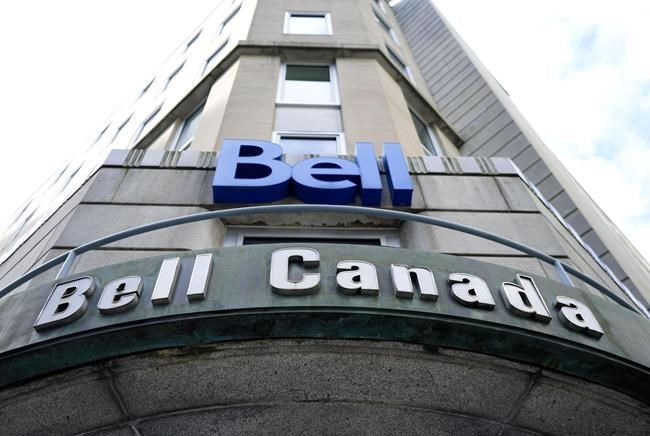TORONTO — As Canadians face a potential further decline in local news coverage by legacy media outlets, industry watchers hope independent and non-profit companies can fill the void.
The Canadian media industry has suffered multiple blows this month, with BCE Inc. eliminating 1,300 positions, including a six per cent cut at Bell Media, as the company undergoes "a consolidation of news gathering."
Bell simultaneously asked the CRTC to waive local news and Canadian programming requirements for its television stations, saying its obligations are based on outdated market realities.
Meanwhile, Postmedia Network Canada Corp. said Tuesday it's in talks to merge with Nordstar Capital LP, the owner of Metroland Media Group and the Toronto Star, in a bid to create greater scale in response to the "existential threat" facing the media industry.
Magda Konieczna, an associate journalism professor at Montreal's Concordia University, said that as corporate media decrease prioritization of resources for local coverage, it offers an opportunity for journalism startups.
"Where I find hope is the people on the ground who are saying, 'This isn't working, like the Montreal Gazette is not providing the kind of news that I need in my community … so I'm going to try to start a thing and see how that goes,'" she said.
"We're seeing some, especially young folks, especially people of colour who have traditionally been underserved by mainstream media, trying to start their own thing in Canada and slowly getting increased attention."
Konieczna pointed to news outlets such as The Green Line, The Discourse, The Resolve and The Narwhal as examples of new media companies filling gaps in coverage left by shrinking traditional media.
"We see corporations making these decisions that they need to make in order to keep making money, in order to satisfy shareholders," she said. "And those decisions are increasingly in tension with the idea of needing local news to help democracy to function."
Speaking at the Collision tech conference in Toronto on Wednesday, Alan Rusbridger, former editor of The Guardian, said media consolidation often leads to layoffs and news outlets prioritizing the "cheap stuff" in coverage rather than investigations.
He said readers "can sniff that" and that there's evidence they will pay for content they can't get anywhere else.
"If you had the accountant running the show, that would be the first thing that would close down because as I said, this is far too expensive," Rusbridger said. "But when we went to the readers and said, 'We rely on you now to support us,' they said, 'Well, if you can do journalism like that we will support you.'"
Brad Clark, a journalism professor at Calgary's Mount Royal University, said there are global examples of digital publications, especially those operating on non-profit models, that seem to be working.
"I do think it's interesting when we look at generally what organizations have been struggling, it's mostly the legacy media — the Bells of the world and Postmedia and Torstar," he said.
"I look at someone like ProPublica and I look at some of the collaborative efforts that have gone on between different media organizations to put stories out. I think that's still a really viable option, but it's not something that the legacy media engage in to the same extent."
Konieczna said that as Canadian media startups grow, they should look to their U.S. counterparts for inspiration, particularly when it comes to that level of collaboration.
"There's been so much journalistic innovation happening in the U.S. over the last 15 years and we can look down there and see what worked and what didn't," she said.
"But one big difference between the U.S. and Canada is that there's so much philanthropic funding there. There are good and bad things about that, but it has provided the startup capital for a whole new class, maybe even industry of journalism in the U.S."
Absent that same flow of philanthropic funding for new media in Canada, she said the federal government has provided grants for the industry through the Canadian journalism labour tax credit and Local Journalism Initiative, recognizing that communities need local journalism to continue to function.
Ottawa also attempted to help news organizations recoup advertising revenues lost to tech giants through Bill C-18, the Online News Act, despite both Meta and Google saying they would remove Canadian news from their platforms to avoid having to compensate the news outlets.
"I think those are beginnings," said Konieczna.
"There's space for a lot more innovation and there's space in particular for a lot more kind of promoting those organizations that are on the ground, listening to people in communities. I would love to see that government funding better able to support those organizations."
—With files from Tara Deschamps in Toronto
This report by The Canadian Press was first published June 29, 2023.
———
Torstar holds an investment in The Canadian Press as part of a joint agreement with subsidiaries of The Globe and Mail and Montreal’s La Presse.
Companies in this story: (TSX:PNC.B)
Sammy Hudes, The Canadian Press



